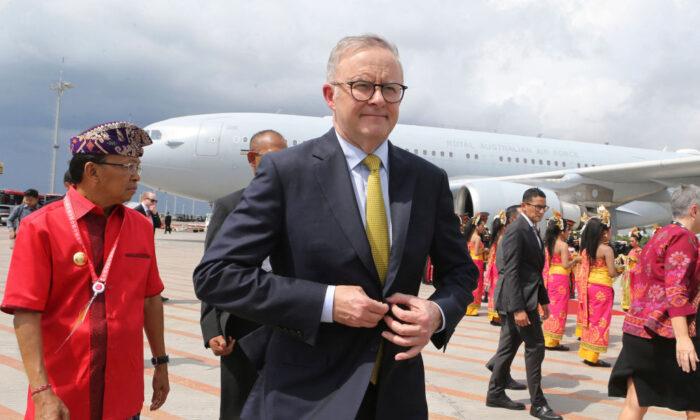Leaders from Australia and China have agreed to meet on the sidelines of the G20 Summit in Bali, Indonesia, suggesting a thawing in diplomatic relations.
This will be the first time in over two years that leaders have met after the Chinese Communist Party (CCP) took issue with the Australian Morrison government calling for an inquiry into the origins of COVID-19 in 2020.
In response, the CCP launched an 18-month-long economic coercion campaign against Australian exports estimated to have cost producers $20 billion (US$13.4 billion) in trade.
“We enter this discussion with goodwill. There are no preconditions on this discussion,” he said on Nov. 14.
“I’ve said since I became the prime minister, but before then as well, that dialogue is always a good thing. We need to talk in order to develop mutual understanding.”
Beijing Wants Australia to Meet Them ‘Halfway’
Chinese Ambassador to Australia, Xiao Qian, previously said told the Australian Broadcasting Corporation’s 7:30 Report the government should put effort into meeting Beijing “halfway” and for a “favourable atmosphere” to exist before any resumption of high-level relations.However, he sidestepped questions about the type of conditions the CCP wanted.
In 2020, representatives of Beijing leaked a document to media outlets containing “14 grievances” that the Australian government had to fulfil before bilateral ties could be reset.
PM Says He Will Stand Firm on Australia’s National Interests
Albanese has indicated he will not compromise on Australia’s national interests.The prime minister also said Beijing needed to withdraw its list of 14 demands.
“I, whenever asked—must have been hundreds of times now—have said that the demands, which were placed by China, are entirely inappropriate. We reject all of them. We will determine our own values. We will determine Australia’s future direction,” Albanese said.
In Bali, the prime minister reiterated the above sentiment saying he would put Australia’s position forward to the Chinese leader.
“Australia will put forward our own position. I look forward to having a constructive discussion with President Xi tomorrow,” he said.
Meanwhile, Australian MPs are calling for Beijing to remove the sanctions.
Chalmers also played down any hope that the meeting would solve Australia and China’s differences quicky.
“First of all, we do need to recognise that when we have these big differences with China, one meeting is not going to solve all of them in one hit,” he said.
“As I said, this is about engaging. It’s been a long time since this has occurred, and so it’s an opportunity to open up a dialogue. I don’t think anybody pretends that some of the issues that China has raised, certainly some of the issues that we have raised, will be solved overnight.”




